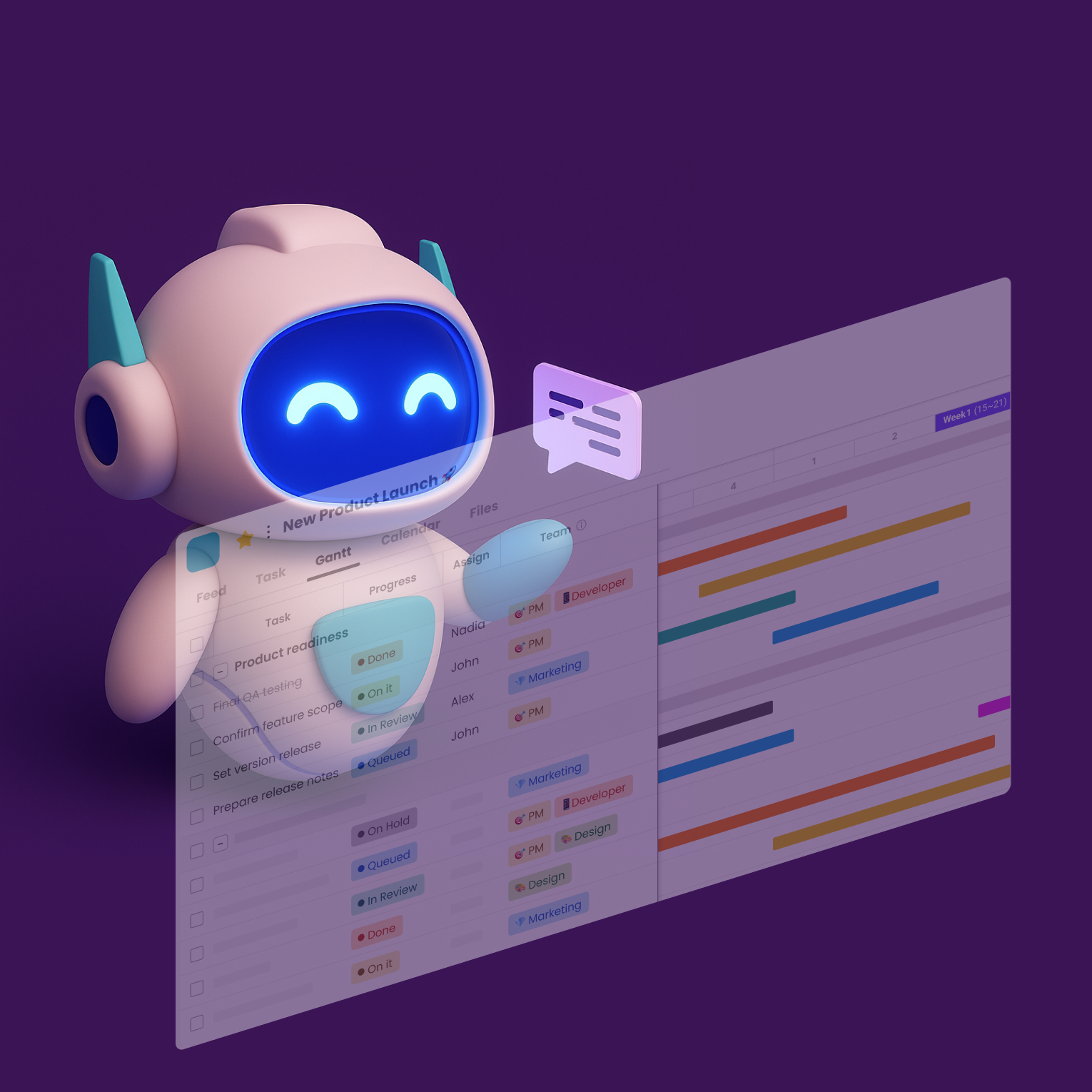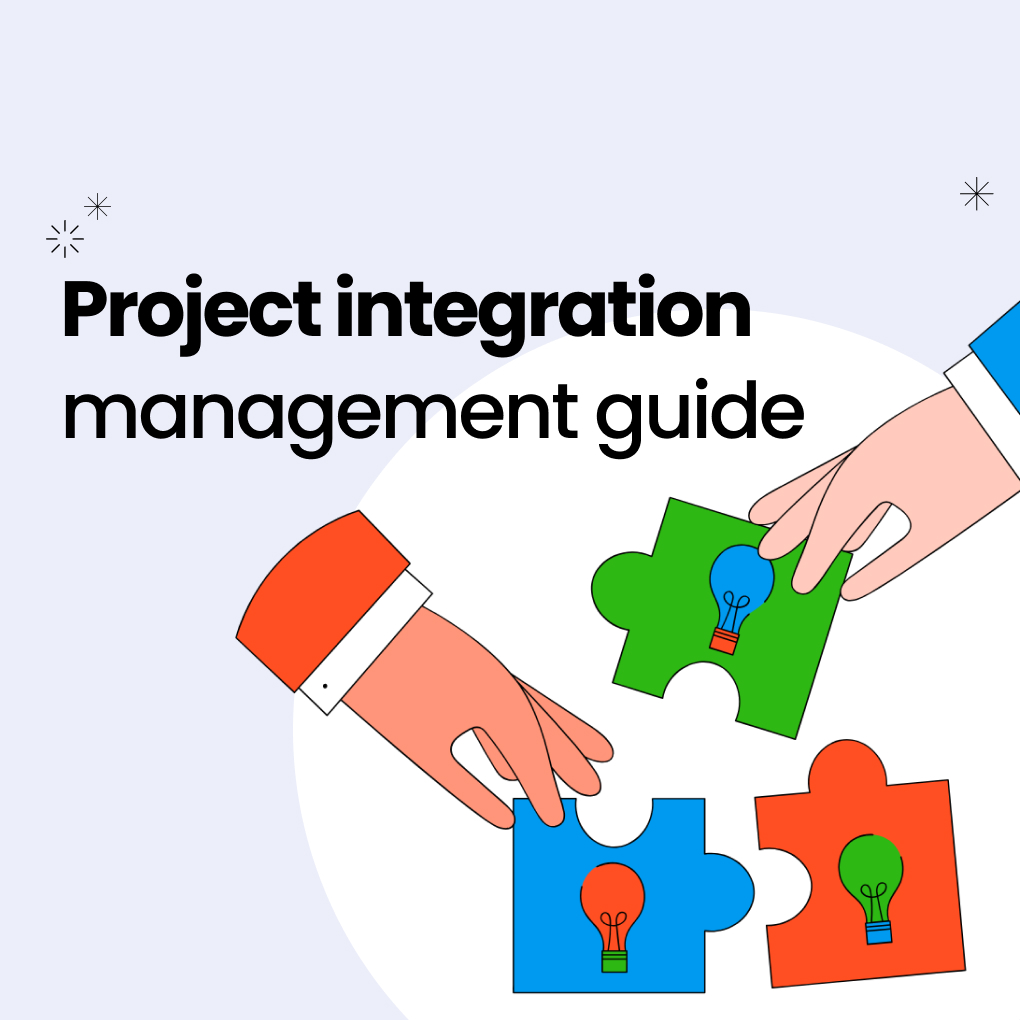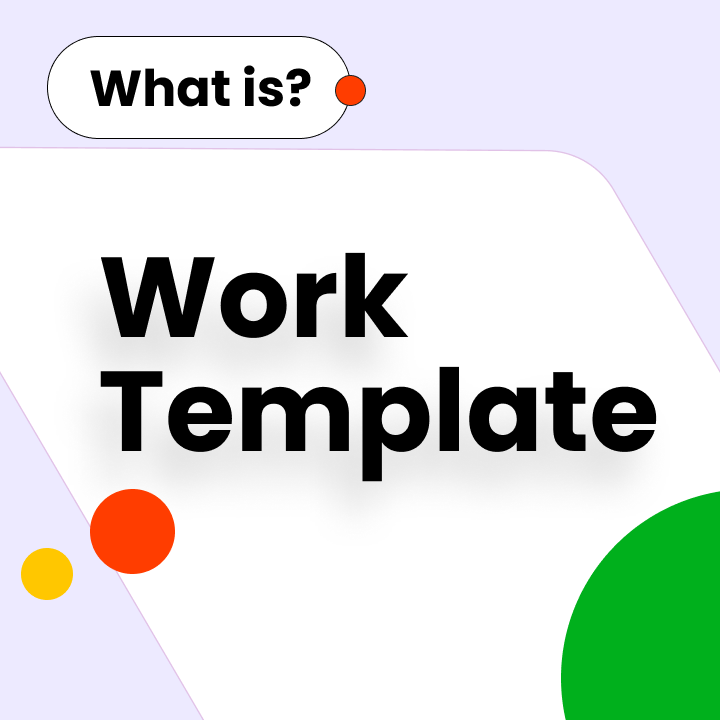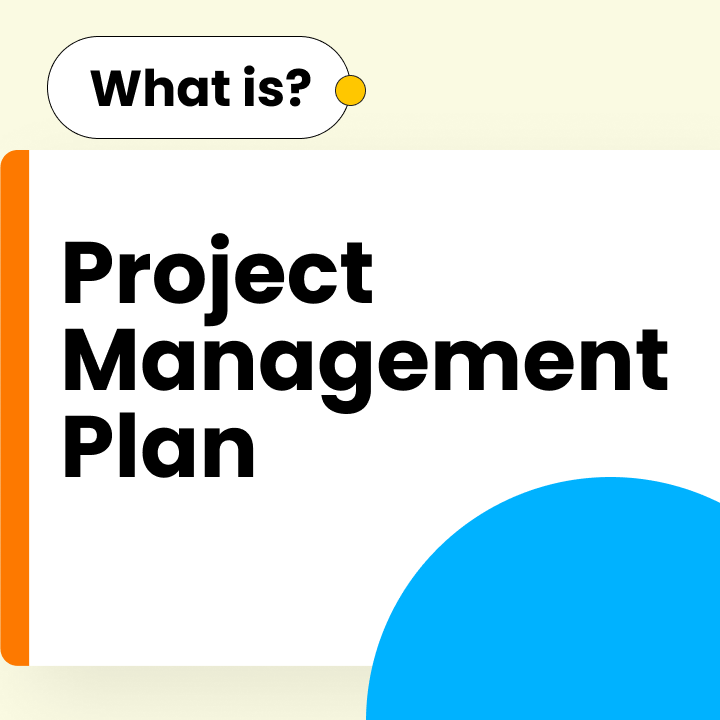Many teams struggle with effective project management. Traditional methods often result in delayed deliveries, misallocated resources, and communication breakdowns. AI project management software addresses these challenges by automating tasks, predicting risks, and improving collaboration.
With these tools, teams can stay organized, save time, and successfully complete projects. AI enhances every aspect of construction project planning and execution, from intelligent scheduling to real-time analytics. For businesses looking to streamline workflows, AI project management software is an ideal solution.
Equipped with the right tools, teams can work faster, smarter, and more efficiently.
What Is AI in Project Management?
AI in project management refers to technology that automates processes and analyzes data. Unlike traditional methods, AI project management tools can predict risks, optimize resources, and improve workflows with minimal manual input. This technology transforms how teams plan, track, and execute their work.
How AI Is Changing Project Management
Businesses are increasingly adopting AI project management for complex tasks. Instead of manually tracking performance, AI tools leverage data from past projects to identify delays, suggest improvements, and automatically assign upcoming tasks. For example, if a project is falling behind, AI can detect the issue and propose a solution.
These tools also enhance communication by summarizing meetings, prioritizing tasks, and sending smart reminders. AI project management software allows teams to offload repetitive tasks, freeing up time for strategic thinking. As a result, projects are completed more quickly, with fewer errors, and resources are managed more effectively.
Key AI Capabilities in Modern Project Management Tools
New AI tools offer a range of functions. They utilize predictive analytics to forecast risks based on historical data and automate scheduling by assigning tasks and deadlines without user input.
AI can interpret team messages through Natural Language Processing (NLP), facilitating smooth collaboration. Some tools employ machine learning to optimize workloads, ensuring no team member is overburdened. By integrating AI into project management, organizations gain instant insights that help reduce costs.
Benefits of AI Project Management Tools
AI project management tools provide significant advantages for teams and businesses. These solutions automate routine tasks, assist in planning, and enhance collaboration. By incorporating artificial intelligence, organizations can complete work more quickly and with fewer errors, gaining insights that would be difficult to achieve manually.
Automated Task Management
One major benefit of project management software is task automation. These tools can handle scheduling, reminders, and task assignments without human intervention, reducing errors and saving time. For instance, when a team member completes a task, the algorithm automatically assigns the next task based on priorities.
AI project management tools also track progress and adjust deadlines as needed. Managers no longer need to chase updates or spend hours manually updating spreadsheets. The AI organizes everything, allowing teams to focus on critical tasks rather than administrative duties.
Predictive Analytics for Smarter Planning
AI not only automates tasks but also enhances planning. AI project management tools analyze past projects to predict future risks, alerting managers to potential delays before they occur. This enables timely adjustments to timelines or resources.
Some advanced AI tools even recommend the best team members for specific tasks based on their skills and workloads, preventing burnout and boosting efficiency. Predictive analytics empowers businesses to make informed decisions and avoid costly mistakes.
Faster Decision-Making with Real-Time Data
Delays in receiving reports or updates can slow down projects. AI in project management provides real-time data, with dashboards displaying progress, budgets, and obstacles instantly. Managers can quickly identify which tasks are on track and which need attention.
AI tools also generate automatic reports that highlight key metrics without manual effort. Teams can respond to changes promptly, rather than waiting for weekly meetings. This agility helps businesses remain competitive and meet project deadlines.
Improved Team Communication and Coordination
Miscommunication is a common cause of project failures. AI in project management enhances coordination by summarizing discussions, sending alerts, and translating messages. Some tools even analyze team sentiment to identify frustrations.
Many free AI project management tools include chatbots that answer frequently asked questions, reducing unnecessary meetings and emails. Team members receive immediate answers, allowing work to continue smoothly. Improved communication leads to fewer mistakes and faster progress.
AI Features in Project Management Software
Modern project management tools leverage AI to tackle common workflow challenges. By automating processes and providing valuable insights, these tools enable teams to work more efficiently. AI-driven project management software is transforming how organizations execute their projects.
Time and Resource Optimization
A standout feature of AI project management tools is their ability to optimize schedules and resources. These tools assess team availability, skills, and workloads to assign tasks effectively. By analyzing historical data, they can predict how long each task will take, ensuring that workloads remain manageable and projects stay on track.
AI also helps balance workloads across departments. If one team finishes early, the system can automatically reassign tasks. Achieving this level of optimization is challenging with manual planning. Companies that adopt these tools experience increased productivity and fewer scheduling conflicts.
Risk Detection and Mitigation
AI is adept at identifying potential issues before they arise. Advanced project management systems analyze past projects to uncover trends, alerting managers to risks like overspending or delays. Some tools even offer solutions to mitigate these problems.
For example, if a project in the previous quarter faced delays, the AI can flag similar risks early on. This allows teams to adjust timelines or resources proactively, reducing the likelihood of repeating mistakes. With predictive capabilities, businesses gain greater control over future deliverables, making these tools highly valued in project management.
Natural Language Processing (Task Summaries and Suggestions)
Many AI tools for project management now understand human language. They can extract tasks from emails, meetings, chats, and more, automatically generating summaries or action items. This feature saves teams hours of manual note-taking.
Some systems take it a step further by suggesting next steps. For instance, if a team discusses a deadline change in Slack, the AI can update the project timeline accordingly. These intelligent features enhance collaboration, and even free project management AI tools often include basic natural language processing capabilities to help teams stay organized.
Workflow Automation
Repetitive tasks can hinder project progress. AI project management software addresses this by automating routine processes. Tasks such as sending approval requests, updating statuses, and sending reminders can be handled automatically based on predefined rules.
For example, when a task reaches 90% completion, the tool might notify the next team member. It can also generate reports for stakeholders every Friday. This automation reduces the risk of errors, allowing teams to eliminate administrative burdens and focus on creative problem-solving.
Top AI Project Management Tools for 2025
The right AI project management tool can transform team dynamics. By 2025, these tools have become smarter, faster, and more user-friendly than ever. They efficiently manage daily tasks while also aiding in future planning. The best solutions blend robust automation with intuitive interfaces. Here are the leading AI project management tools, each excelling in unique ways.
Morningmate — Best for Real-Time Team Collaboration and Automation

Morningmate stands out in AI-driven project management for teams that prioritize seamless communication and clarity. Its intuitive platform combines task management, messaging, and file sharing in one space, with AI features that assist with project summaries, content generation, and smart task filtering.
The system automatically organizes discussions, tasks, and files by project, so team members can access relevant information without friction. While not a document co-editing tool, Morningmate ensures real-time updates across devices, keeping everyone aligned. With multilingual support and built-in AI translation, it’s especially well-suited for global teams navigating remote and hybrid workflows.
ClickUp — Best for Customizable AI Task Management
ClickUp remains a leading choice for flexible AI project management. Its latest features adapt to any workflow style, allowing users to train the system to prioritize tasks according to their preferences. The more a team uses ClickUp, the more tailored its suggestions become.
The platform now includes AI-assisted goal setting, analyzing past project data to recommend realistic deadlines. ClickUp’s strength lies in its adaptability; marketing teams and developers can use it differently while still gaining equal value. For organizations seeking AI project management software that evolves with them, ClickUp is a top contender.
Motion — Best for Auto-Scheduling and Focus Optimization
Motion addresses one of project management’s biggest challenges: scheduling. This AI tool acts as an intelligent calendar for entire teams, automatically adjusting tasks based on priorities and deadlines. When unexpected work arises, Motion reshuffles everything to keep projects on track.
The tool also optimizes focus for knowledge workers, blocking distraction-free time based on energy levels and work patterns. Motion’s scheduling engine considers each person’s productive hours, bringing order to teams facing constant interruptions and shifting priorities.
Asana — Best for Team Planning with Built-In AI Suggestions
Asana has enhanced its AI capabilities in project management. The platform now offers smart suggestions at every planning stage. When creating a new project, Asana’s AI recommends successful templates. During execution, it identifies potential bottlenecks before they cause delays.
The tool excels in visual project planning, automatically generating Gantt charts from task lists. Asana also features predictive workload balancing, allowing managers to see which team members may be at risk of burnout weeks in advance. For organizations that value data-driven planning, Asana strikes the right balance between simplicity and intelligence.
Monday.com — Best for AI-Assisted Workflows and Project Overviews
Monday.com excels at making complex data easy to understand. Its AI project management tools transform numbers into visual dashboards, highlighting trends that might otherwise go unnoticed. Color-coded alerts draw attention to what matters most.
The platform’s workflow automation has become more sophisticated, allowing users to create “if-then” rules in plain language. Monday.com’s AI interprets these instructions and sets up the automation. For leadership teams needing quick project health checks, its high-level overviews save hours of analysis.
Wrike — Best for Enterprise-Level Predictive Insights
Wrike leads in advanced analytics for large organizations. Its AI project management features focus on predicting outcomes, forecasting project success rates with impressive accuracy by considering factors like team velocity and historical delays.
Enterprise users appreciate Wrike’s risk scoring system, which provides a constantly updated risk rating for each project. Executives can quickly identify which initiatives require attention. The platform also offers what-if scenario planning, making it invaluable for large companies managing complex portfolios.
Notion — Best for Combining AI Writing and Project Management
Notion has evolved from a simple wiki tool to a powerful AI project management solution for content-heavy teams. Its integrated AI assistant helps draft project briefs, meeting notes, and status reports in seconds.
The tool is particularly effective for research and development projects, allowing teams to connect documents, tasks, and databases in one place. Notion’s AI helps uncover connections across information, bridging the gap between writing and project tracking for creative agencies and product teams.
Trello — Best Lightweight Tool with AI Strategy Suggestions
Trello demonstrates that simple tools can still offer smart AI project management features. Its AI provides gentle suggestions for improving workflows without overwhelming users. The system might recommend combining similar cards or adding checklists to frequent tasks.
Trello’s strength lies in its visual simplicity. Even with AI features, it remains user-friendly. The platform now offers “strategy cards” that suggest ways to optimize boards. For teams seeking AI project management tools without a steep learning curve, Trello is an excellent choice.
How to Choose the Right AI Tool for Your Team
Selecting the best AI project management software requires careful consideration. To find the right fit, teams must assess their needs and workflows, as many options are available. The ideal tool should address existing challenges and align with the team’s working style. Here are key factors to consider when choosing AI project management tools for your business.
Identify Your Team’s Pain Points
Before exploring AI for project management, teams should pinpoint their most significant challenges. Common issues include missed deadlines, ineffective communication, and inadequate task tracking. Some teams may struggle with resource allocation, while others need better risk prediction.
Understanding these pain points helps narrow down options. A team overwhelmed with scheduling will require different AI features than one grappling with documentation. By documenting specific challenges, it becomes easier to match software capabilities later on, avoiding the temptation to choose flashy tools for their own sake.
Match AI Features to Project Needs
AI tool features vary widely among project management solutions. Teams working on creative projects may benefit from task suggestions, while engineering teams might prioritize risk control and predictive analytics.
Creating a checklist of must-have features versus nice-to-haves can be very helpful. For example, executive teams may require automated reporting, while remote teams will prioritize real-time collaboration tools. Comparing this shortlist with the best available AI tools for project management will highlight the strongest contenders. The goal is to find software whose AI capabilities align with daily work.
Free Trials vs. Enterprise Plans
Many providers offer free AI project management tools with basic functionality. Trials allow teams to explore core features before committing. However, advanced AI capabilities often require paid plans.
Entry-level packages may be suitable for small teams, while larger organizations typically need full customization and support, leading them to opt for enterprise plans. Budget considerations are important, but scalability is equally crucial. The right AI project management software should grow with the team, avoiding the need for a switch later.
Evaluate Data Privacy and Integration
Data security should be a priority when selecting AI management solutions. Teams must ensure they understand where their information is stored and who has access. Each industry has compliance requirements, so legal teams should review the terms.
Integration with existing tools also impacts success. The best project management tools connect seamlessly with emails, calendars, and other workplace applications. When tools don’t work well together, teams waste time trying to make them compatible. Check for available APIs and pre-built connectors to avoid buyer’s remorse.
Balancing features, cost, and usability is essential when choosing a project management tool for your AI project. Analyzing needs first helps teams make better long-term decisions. The right software will support your efforts without you even realizing it. With careful selection, AI technology can significantly enhance project teamwork.
FAQs on AI Project Management
What’s the difference between AI and traditional project management tools?
Traditional project management tools require manual input for tracking tasks, scheduling, and reporting. Users must update statuses, adjust timelines, and identify risks on their own. In contrast, AI project management software automates these tasks using machine learning. It analyzes historical data to predict delays, recommend task assignments, and identify potential issues before they become significant problems. The main distinction is that AI tools learn and improve over time, while traditional systems only perform tasks as directed by users.
Are there free AI tools for project management?
Yes, several platforms offer free AI tools for project management with basic features. Options like Morningmate, ClickUp, Trello, and Asana provide limited AI capabilities in their free versions, such as automated task suggestions and simple reporting. These tools are suitable for small teams exploring AI functionalities. However, advanced features like predictive analytics and custom automation usually require a paid subscription. Free versions allow teams to assess whether AI project management aligns with their workflow before making a financial commitment.
What are the risks of using AI in project management?
While AI in project management offers numerous advantages, it also presents potential risks. Relying too heavily on AI can lead to blind trust in automated decisions without human oversight. Data privacy is another concern, as some tools may process sensitive project information on cloud servers. Additionally, AI recommendations may not always consider team dynamics or creative problem-solving. The best approach is to use AI as a supportive tool rather than a substitute for human judgment, ensuring data security measures are in place and regularly reviewing AI-generated suggestions.
Final Thoughts
AI project management tools have revolutionized how teams plan, execute, and deliver their work, with more organizations adopting these technologies. These intelligent solutions not only track tasks but also provide early warnings of potential roadblocks, optimize resource allocation, and automate repetitive tasks. Both startups and large enterprises can leverage artificial intelligence in project management to create more efficient workflows and make data-driven decisions.
Completing tasks and conducting complex analyses still require a human touch. AI can handle repetitive tasks, allowing teams to focus on more meaningful work. The best AI-powered project management software will not replace human judgment but will enhance it by providing insights that users might overlook. Individuals can then apply their judgment to make strategic decisions.
As more teams embrace this technology, project management will evolve from manual coordination to achieving goals more effectively. It’s essential to choose solutions that align with your team’s needs. With the right planning and implementation, AI project management tools can empower teams to achieve more than they ever thought possible.
\




